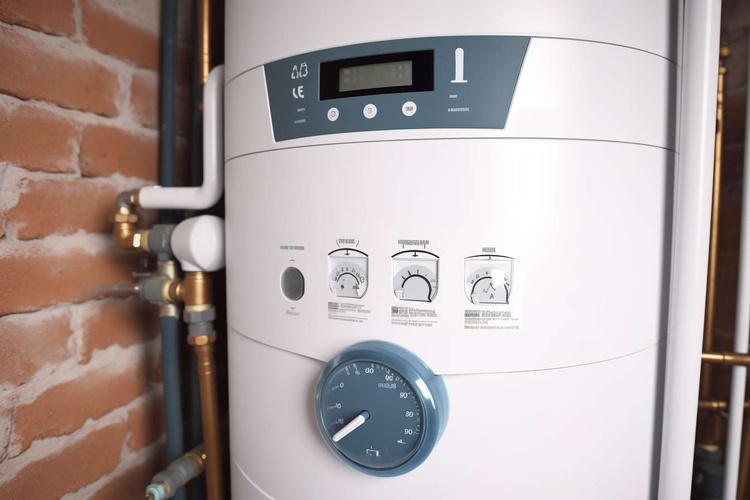Water Heaters and Boilers: A Comprehensive Guide
Understanding the differences between water heaters and boilers is essential for homeowners looking to optimize their heating systems. Both appliances serve distinct purposes in residential settings, with water heaters primarily providing hot water for domestic use while boilers heat water for central heating systems. This guide explores the technology, efficiency considerations, and innovative solutions available in today's market to help you make informed decisions about your home's heating infrastructure.

Modern homes rely heavily on efficient heating systems to maintain comfort throughout the year. Water heaters and boilers represent two fundamental technologies that serve different yet complementary roles in residential heating. While water heaters focus on delivering hot water to taps and showers, boilers circulate heated water through radiators or underfloor heating systems to warm entire properties. The choice between these systems, or the decision to use both, depends on various factors including property size, energy efficiency goals, and household requirements.
How Do Efficient Water Heaters Work?
Efficient water heaters have evolved significantly from traditional storage tank models. Modern units incorporate advanced insulation, heat pump technology, and condensing mechanisms to minimize energy waste. Tankless or instantaneous water heaters heat water on demand, eliminating standby heat loss associated with storage tanks. These systems use high-powered burners or electric elements to rapidly heat water as it flows through the unit, providing endless hot water while consuming energy only when needed. Heat pump water heaters extract warmth from surrounding air, making them exceptionally efficient in moderate climates. Condensing water heaters capture heat from exhaust gases that would otherwise escape, achieving efficiency ratings exceeding 90 percent. Solar water heating systems represent another efficient option, using rooftop collectors to harness renewable energy for water heating needs.
What Makes Advanced Boiler Technology Different?
Advanced boiler technology has revolutionized home heating through innovations in combustion efficiency and system controls. Condensing boilers represent the current standard in the UK, capturing latent heat from flue gases that conventional boilers waste. This process involves cooling exhaust gases below their dew point, causing water vapor to condense and release additional heat energy. Modern boilers feature modulating burners that adjust flame intensity based on heating demand, preventing the energy waste associated with constant cycling. Weather compensation controls automatically adjust boiler output based on outdoor temperatures, maintaining optimal efficiency across varying conditions. Smart thermostats and zone controls further enhance performance by heating only occupied areas when needed. Combination boilers integrate water heating and central heating functions in a single compact unit, eliminating the need for separate hot water cylinders and providing space-saving solutions for smaller properties.
Which Innovative Energy Saving Solutions Are Available?
Innovative energy saving solutions extend beyond the heating appliances themselves to encompass whole-system approaches. Thermal storage systems allow households to heat water during off-peak electricity periods when rates are lower, storing thermal energy for later use. Hybrid systems combine different technologies, such as pairing a heat pump with a conventional boiler, automatically selecting the most efficient option based on current conditions. Smart home integration enables heating systems to learn household patterns, automatically adjusting temperatures and hot water availability to match daily routines. Improved insulation and pipe lagging reduce heat loss throughout distribution systems, ensuring that heated water reaches its destination without significant temperature drops. Thermostatic radiator valves provide room-by-room temperature control, preventing energy waste in unused spaces. Water-saving fixtures reduce overall hot water demand, indirectly decreasing the energy required for heating. System monitoring apps provide real-time feedback on energy consumption, helping households identify opportunities for further efficiency improvements.
What Are the Cost Considerations for Different Systems?
Understanding the financial implications of water heating and boiler systems requires examining both initial installation costs and ongoing operational expenses. Installation costs vary considerably based on system type, property configuration, and existing infrastructure. A standard combi boiler installation typically ranges from £1,500 to £3,500, while system boilers with separate hot water cylinders may cost between £2,000 and £4,500. Heat pump water heaters generally require investments of £1,200 to £3,000, though government incentives may offset some expenses. Tankless water heaters range from £500 to £1,500 for the unit, with installation adding £300 to £800 depending on complexity. Annual operating costs depend heavily on fuel type and efficiency ratings. Gas boilers typically cost £400 to £800 annually to run, while electric systems may range from £500 to £1,200. Heat pump systems often achieve annual running costs of £300 to £600 due to their exceptional efficiency.
| System Type | Typical Installation Cost | Estimated Annual Running Cost | Key Efficiency Feature |
|---|---|---|---|
| Condensing Combi Boiler | £1,500 - £3,500 | £400 - £800 | Captures flue gas heat |
| System Boiler with Cylinder | £2,000 - £4,500 | £450 - £850 | Separate hot water storage |
| Heat Pump Water Heater | £1,200 - £3,000 | £300 - £600 | Extracts ambient heat |
| Tankless Water Heater | £800 - £2,300 | £350 - £700 | On-demand heating only |
| Solar Water Heating | £3,000 - £6,000 | £150 - £300 | Renewable energy source |
Prices, rates, or cost estimates mentioned in this article are based on the latest available information but may change over time. Independent research is advised before making financial decisions.
How Do Maintenance Requirements Compare?
Regular maintenance ensures optimal performance and longevity for both water heaters and boilers. Boilers require annual servicing by qualified engineers to maintain safety standards and warranty coverage. These inspections typically cost £60 to £120 and include checking combustion efficiency, inspecting heat exchangers, and testing safety controls. Water heaters need less frequent professional attention, though annual checks remain advisable. Tankless units benefit from periodic descaling in hard water areas to prevent mineral buildup that reduces efficiency. Storage water heaters require occasional anode rod replacement to prevent tank corrosion, typically every three to five years. Flushing sediment from storage tanks annually improves heat transfer and extends equipment life. System filters should be cleaned regularly to prevent circulation problems. Pressure relief valves need testing to ensure proper operation. Homeowners can perform basic checks including monitoring for leaks, unusual noises, or performance changes that might indicate developing issues requiring professional attention.
What Should You Consider When Choosing a System?
Selecting appropriate heating equipment requires evaluating multiple factors specific to your property and household. Property size significantly influences capacity requirements, with larger homes needing more powerful systems or multiple units. Fuel availability determines viable options, as not all areas have mains gas access. Energy efficiency ratings directly impact long-term operating costs, making higher-efficiency units economically advantageous despite increased initial investment. Hot water demand varies considerably between households, with larger families requiring greater capacity or faster recovery rates. Space constraints may favor compact combination boilers over systems requiring separate cylinders. Environmental concerns increasingly influence decisions, with heat pumps and solar systems offering lower carbon footprints. Existing infrastructure affects installation complexity and costs, as some systems integrate more easily with current setups. Budget considerations encompass both upfront expenses and projected lifetime costs including energy consumption and maintenance. Local regulations and building codes may restrict certain installations or mandate specific efficiency standards. Professional assessments from qualified heating engineers provide valuable guidance tailored to individual circumstances.
Modern water heating and boiler technologies offer numerous options for achieving comfort while managing energy consumption effectively. The ongoing evolution of heating systems continues to deliver improvements in efficiency, convenience, and environmental performance. By understanding available technologies and carefully evaluating household requirements, homeowners can select systems that provide reliable service while minimizing operational costs and environmental impact for years to come.




